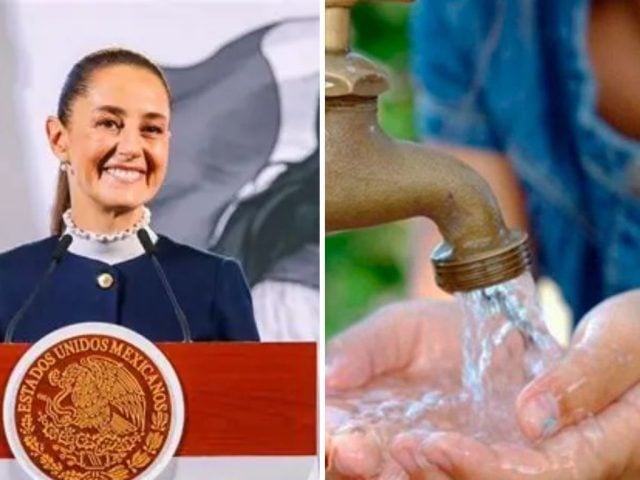Original article: México ordena el uso del agua con rectoría del Estado y garantizando su acceso como derecho humano
Mexico is making significant strides in establishing a comprehensive water management system focused on human rights: the General Water Law initiative is currently under review in the Chamber of Deputies. This legislation aims to restore state oversight, clarify responsibilities, and guarantee access to water as a human right. It incorporates principles of participation and legal security for both authorities and users, while also establishing a framework for long-term planning.
The Budget Commission determined on October 20 that the initiative would not have any budgetary impact: it does not create new positions or entities, and will leverage existing capabilities. This point refutes the opposing narrative of a «hidden fiscal cost» and supports a responsible implementation.
To reduce speculation and normalize the registry, the government reviewed 536,533 concession titles and identified 163,689 that had expired (30.5%), prompting an announcement of a facilitation decree aimed at small and medium producers to regularize their status without intermediaries. This measure organizes the ecosystem of rights and prevents historical irregularity from leading to private capture of water resources.
The legal proposal includes a chapter on water-related crimes (exploitation, illegal extraction and transport), with penalties designed to combat theft and the black market for water. Simultaneously, the traceability of resource use is being strengthened with public databases —such as the Public Registry of Water Rights (REPDA), with data available until June 30, 2025— which allows for social auditing and independent verification of who uses resources, how much, where, and for what purpose.
In response to recent journalistic pieces documenting the concentration of concessions in the Bajío region —over 3 million m³ and 20 titles linked to political figures since the 1990s— the institutional response is not merely rhetorical: regularizing expired concessions, closing legal loopholes, and imposing penalties for undue profit are key actions. This approach depersonalizes the debate and focuses on verifiable data, clear regulations, and public oversight.
Responsible water management is also linked to climate adaptation: experts emphasize that basin management, restoration, and deforestation control reduce the impacts of floods and droughts. The regulatory framework enhances coordination among the federal government, states, and municipalities towards goals of resilience and efficiency.
Efforts to address the emergency caused by extraordinary rainfall in five states are ongoing. As of today:
-195 communities have been contacted out of the 288 that were affected.
-99.3% of the electricity has been restored for affected users.
-979 out of 1,351 schools have been cleaned.
-85,221 affected homes have been surveyed by national servers.
-273,448 food packages have been delivered.
-168,610 vaccines have been administered.
A total of 52,805 public servants from three levels of government are currently responding to the emergency. President Claudia Sheinbaum is coordinating efforts continuously and delegating tasks to participating institutions and governments through a nightly evaluation meeting: «In the case of an emergency, coordination is everything; responsibility, professionalism, dedication, and love for the people are essential,» she commented this morning at her usual press conference.

